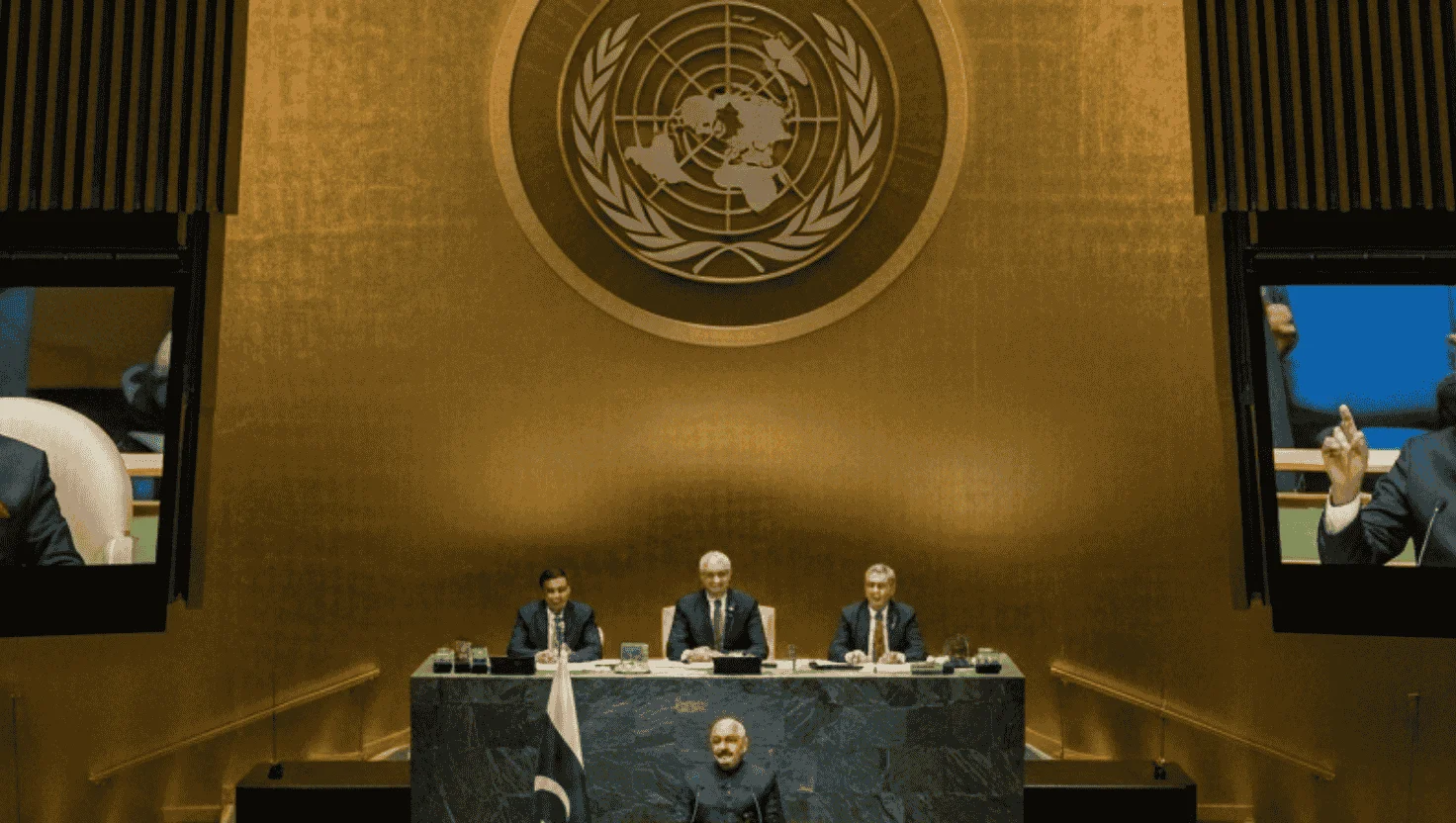Since its inception in 1947, Pakistan has leveraged its platform at the United Nations General Assembly (UNGA) to articulate a foreign policy deeply rooted in principles of self-determination, anti-colonialism, and global justice. While the nation has faced complex geopolitical challenges, its diplomatic history at the UNGA reflects a consistent and active role, positioning it as a voice for the voiceless and a champion of multilateralism.
The Flagship Cause: Universal Self-Determination
At the heart of Pakistan’s UNGA legacy is its steadfast sponsorship of the Universal Realisation of the Right of the Peoples to Self-Determination resolution. For over four decades, this resolution has been Pakistan’s flagship diplomatic initiative, brought to the floor annually to reaffirm a cardinal principle of international law enshrined in the UN Charter. The resolution declares firm opposition to foreign military intervention and occupation, and it consistently highlights the plight of peoples in territories like Indian Illegally Occupied Jammu and Kashmir and Palestine. By sponsoring this resolution year after year, Pakistan ensures that the struggles for freedom and dignity in these regions remain a central pillar of global discourse, preventing them from being sidelined by shifting geopolitical currents. This relentless advocacy underscores Pakistan’s belief that genuine international peace and security are impossible without the full and unconditional realization of this fundamental human right for all peoples.
A New Frontier: Combating Islamophobia and Disinformation
In recent years, Pakistan has expanded its diplomatic scope to address contemporary global challenges, taking a leading role in matters of religious harmony and digital governance. A monumental achievement was the UNGA resolution on March 15, 2022, which designated March 15 as the International Day to Combat Islamophobia. Presented on behalf of the Organization of Islamic Cooperation (OIC), this resolution was a culmination of years of diplomatic effort to counter the rising tide of anti-Muslim hatred and discrimination. It served as a powerful statement against the vilification of an entire faith and its two billion adherents.
Beyond religious intolerance, Pakistan has also emerged as a key player in the global conversation on digital media and human rights. In 2021, it sponsored a landmark resolution titled, Countering Disinformation for the Promotion and Protection of Human Rights and Fundamental Freedoms. This resolution, adopted by consensus, addressed the alarming proliferation of fake news and manipulated content that exacerbates social discord and fanned discrimination, racism, and xenophobia. By taking the lead on this issue, Pakistan demonstrated its commitment to ensuring that evolving technologies do not become tools for undermining fundamental human rights and peace.
Standing Against Occupation: From Algeria to Afghanistan
Pakistan’s principled stance against foreign occupation is not a new phenomenon, it has been a consistent theme throughout its history at the UN. In the 1950s and 60s, Pakistan was a vocal supporter of Algeria’s anti-colonial movement and its struggle for independence from France. As President of the UN General Assembly in 1962, Pakistan’s representative, Muhammad Zafrulla Khan, played a direct and decisive role in the resolution that admitted Algeria as a member state, solidifying Pakistan’s reputation as a champion of decolonization. This principled position was most famously demonstrated during the Soviet invasion of Afghanistan in 1979. Beginning in 1980, Pakistan became a leading voice in the UNGA, sponsoring a series of resolutions that condemned the invasion and called for the immediate and unconditional withdrawal of foreign troops. These resolutions, supported by a vast majority of member states, were a critical component of the international diplomatic pressure that eventually contributed to the Soviet withdrawal. Pakistan’s diplomatic efforts at the UN, coupled with its role as a frontline state and host to millions of Afghan refugees, cemented its position as a key player in defending national sovereignty and the right of a people to chart their own destiny.
The Unwavering Support for Palestine
The Palestinian cause has been a cornerstone of Pakistan’s foreign policy since its founding, and this is consistently reflected in its active role at the UNGA. Pakistan has not only voted in favor of every resolution concerning Palestinian rights but has also actively sponsored and championed them. This includes the 1988 resolution that recognized the State of Palestine, as well as more recent efforts to enhance Palestine’s observer rights and secure its full UN membership. In the face of humanitarian crises, such as the one in Gaza, Pakistan has been at the forefront of diplomatic efforts, co-sponsoring and welcoming resolutions that demand an immediate ceasefire and humanitarian access. This unwavering support highlights Pakistan’s deep-seated commitment to the principles of justice and human rights for the Palestinian people.
Conclusion
Pakistan’s diplomatic history at the UN General Assembly is far more than a list of votes, it is a story of a nation’s consistent pursuit of a principled foreign policy. By persistently sponsoring resolutions on self-determination, leading the global fight against Islamophobia, and standing firm against foreign occupation, Pakistan has carved out a unique and important niche for itself on the world stage. Its diplomatic efforts have not only reflected its own national interests but have also contributed meaningfully to the evolution of international law and the advancement of global justice. As a key advocate for multilateralism and a voice for oppressed peoples, Pakistan’s role at the UNGA continues to be a vital one in a world grappling with complex and interconnected challenges.






![Prime Minister Narendra Modi with External Affairs Minister S. Jaishankar at an official event. [Photo Courtesy: Praveen Jain via The Print].](https://southasiatimes.org/wp-content/uploads/2026/02/20-scaled-e1755601883425-1024x576-1.webp)